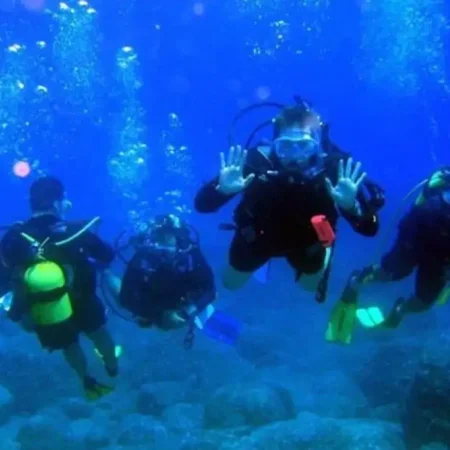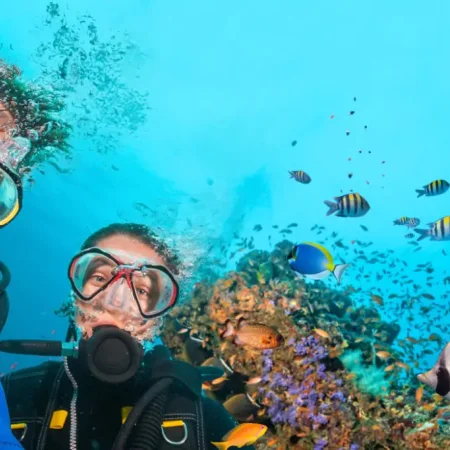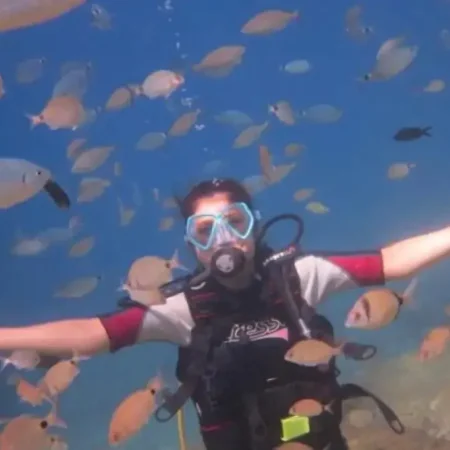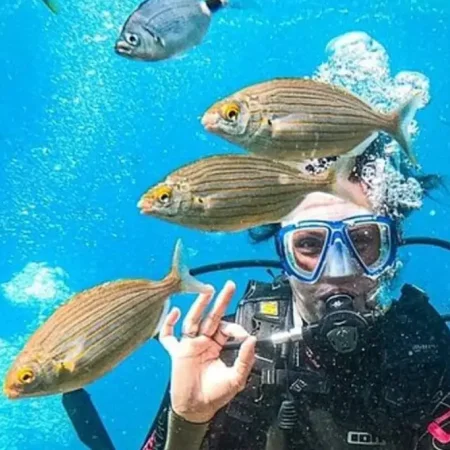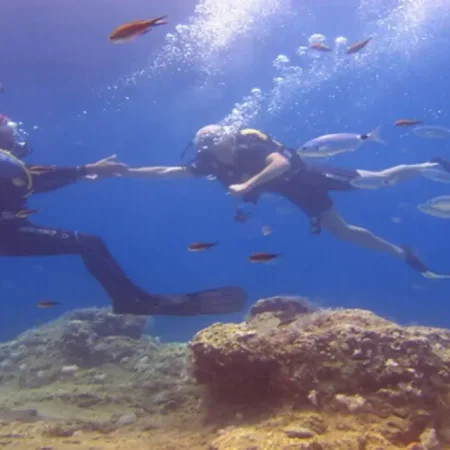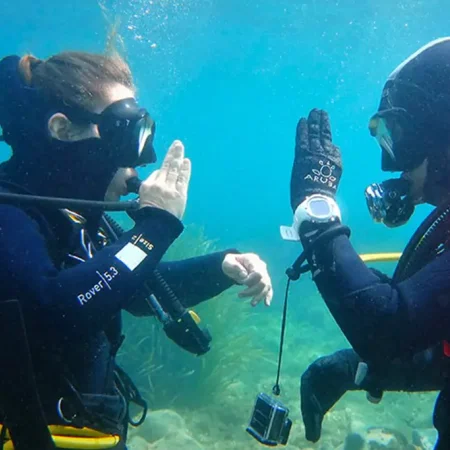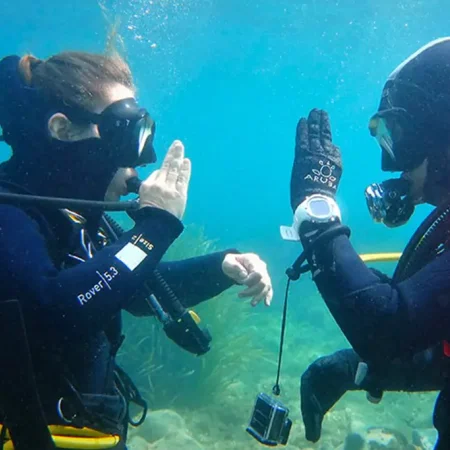What Are Diving Tours?
Diving tours are guided excursions that take participants to popular dive sites. These tours are often led by certified dive instructors or dive masters who ensure that the dive is both safe and enjoyable. Depending on the location, diving tours can range from shallow coral reefs to deep shipwrecks, caves, and even encounters with marine creatures like dolphins, sharks, and manta rays.
Types of Diving Tours
There are several types of diving tours catering to different experience levels and interests:
- Reef Diving: Perfect for beginners, reef diving tours explore coral reefs where you'll encounter a variety of fish, corals, and other marine life.
- Wreck Diving: For history and adventure enthusiasts, wreck diving takes you to sunken ships and aircraft, offering a glimpse into the past.
- Cave Diving: Advanced divers can explore underwater caves, a more technical type of diving that requires specialized training.
- Night Diving: Experience the underwater world in a completely different light—literally. Night dives showcase nocturnal marine life that you won’t see during the day.
Why Choose a Diving Tour?
Safe Exploration for All Skill Levels
One of the biggest advantages of diving tours is that they cater to all experience levels. Whether you're a first-time diver or a certified advanced diver, there’s a tour designed specifically for you. For beginners, tours typically offer a Discover Scuba Diving course where you'll learn basic skills and safety procedures under the guidance of a professional instructor. For seasoned divers, tours can offer more challenging experiences such as deep dives or technical dives in remote locations. Many tour operators also provide the necessary equipment and ensure that all safety measures are met, giving you peace of mind while you dive.
Access to Exclusive Dive Sites
Diving tours often provide access to exclusive or hard-to-reach dive sites. Some of the best dive spots in the world are in remote areas or protected marine parks where individual access is restricted. By joining a guided tour, you not only get the chance to dive in these unique locations but also benefit from the knowledge and expertise of local guides who know the area intimately.
Hassle-Free Experience
A key benefit of booking a diving tour is convenience. The tour operator typically takes care of all the logistics, including transportation, equipment rental, and necessary permits. Some tours even include meals, refreshments, and underwater photography services, so you can focus on enjoying the experience.
Essential Gear for Diving Tours
Having the right equipment is crucial for any successful dive. Fortunately, most diving tours provide rental gear, but here’s a breakdown of the essential diving equipment:
- Wetsuit or Drysuit: These suits help regulate your body temperature while diving.
- Mask and Snorkel: Your mask allows you to see underwater, while the snorkel lets you breathe at the surface without using your air supply.
- Fins: Fins help you move efficiently through the water with minimal effort.
- Buoyancy Control Device (BCD): This is used to control your buoyancy while underwater and on the surface.
- Regulator and Tank: The regulator is the device that allows you to breathe underwater by reducing the high pressure of the air in your tank to ambient pressure.
Additional Equipment for Advanced Divers
For more experienced divers, tours may offer specialized gear, including:
- Dive Computer: Monitors your depth and time underwater, ensuring you stay within safe limits.
- Underwater Camera: Capture stunning photos or videos of marine life and underwater landscapes.
- Dive Light: Essential for night diving or exploring deeper waters.
Dive Safety and Environmental Responsibility
Safety is a top priority on any diving tour. All reputable operators follow strict safety protocols, including pre-dive briefings, equipment checks, and buddy systems. Additionally, PADI-certified (Professional Association of Diving Instructors) or equivalent dive masters accompany tours to ensure that divers are comfortable and adhere to safety guidelines.
Environmental Conservation
It’s also important to practice responsible diving to protect marine ecosystems. Many tour operators are committed to environmental conservation by educating divers about coral reef protection and avoiding behaviors that could harm marine life. Some tours also partner with conservation organizations to offer eco-friendly dives where participants can contribute to marine research or reef clean-ups.
What to Expect on a Diving Tour?
Diving tours typically start with a briefing where you’ll be introduced to the dive site, safety procedures, and the marine life you’re likely to encounter. Here’s a general outline of what to expect:
-
Preparation: You’ll receive your diving equipment and get fitted for your wetsuit and mask. If you're new to diving, a quick pool session may be included to help you get familiar with the equipment.
-
Travel to the Dive Site: Most dive sites are reached by boat, and the journey itself can be an enjoyable part of the experience. You might spot dolphins, seabirds, or even whales en route.
-
The Dive: Depending on the tour, you may dive once or multiple times during the trip. Most dives last between 30 and 60 minutes, depending on your air supply and depth.
-
Post-Dive: After the dive, there’s usually time to relax on the boat, share experiences with other divers, and enjoy refreshments. Some tours may include a second dive or an opportunity for snorkeling.
Popular Destinations for Diving Tours
While this guide doesn’t focus on specific locations, here are some globally recognized spots for unforgettable diving experiences:
- The Great Barrier Reef (Australia): The largest coral reef system in the world.
- Red Sea (Egypt): Famous for its clear waters and vibrant marine life.
- Caribbean Islands: Known for crystal-clear waters and abundant coral reefs.
- Indonesia: Home to the Coral Triangle, one of the most biodiverse marine regions.
- Maldives: Offers stunning atolls and opportunities for drift diving.
Tips for a Successful Diving Tour
Choose the Right Tour for Your Skill Level
Make sure to select a tour that matches your experience level. Beginners should opt for tours that include training sessions, while experienced divers may want to choose tours offering more challenging dive sites.
Stay Hydrated and Rested
Diving can be physically demanding, so it’s essential to stay hydrated and get plenty of rest before your tour. Avoid alcohol and heavy meals before diving to ensure you're in peak condition.
Respect the Marine Environment
Follow the guidelines provided by your dive guide to protect the marine environment. Never touch or disturb marine life, and be cautious around coral reefs.
By joining a diving tour, you’re not just embarking on an underwater adventure—you’re also contributing to the growing global community of divers committed to exploring and preserving our oceans. Whether you’re diving into colorful coral reefs or exploring mysterious underwater caves, the world beneath the waves offers endless opportunities for discovery.

